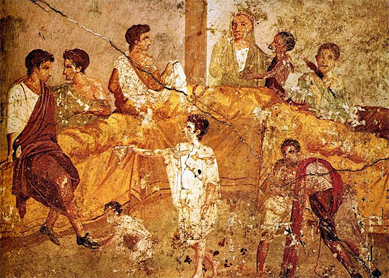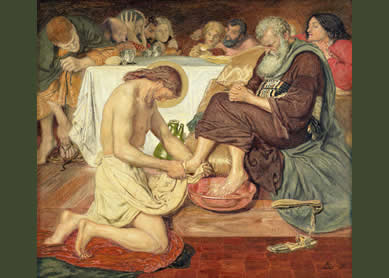Today, lying is a common practice that does not seem to have many consequences; however, in the early church, one lie caused irreparable damage.
Should life in the Holy Spirit change the way a believer acts?
In Acts 5:1-11, Luke introduces Ananias and Sapphira, a married couple within the congregation of new Christians in Jerusalem. Ananias and Sapphira were land owners, which indicates their financial security (Acts 5:1). Acts 5 is the only place where the Bible mentions this couple. (This Ananias is not the same as the one who interacts with Saul in Acts 9.)
Preceding this account, Luke reports that the Holy Spirit filled those who believed in Jesus and caused them to be united in “one heart and soul” (Acts 4:31-32). The Spirit prompted unity and overflowing generosity (Acts 4:32). Those who were able provided for the common needs by selling land and bringing the funds to the apostles (Acts 4:34-35). A man named Joseph, also called Barnabas, provides a positive example. Filled with the Holy Spirit, Joseph sold part of his land to care for the believers’ needs (Acts 4:36-37).
By contrast, Ananias and Sapphira sold a piece of property, and conspired together to keep part of the proceeds (Acts 5:1-2). Peter, as the head of the early church in Acts, confronts Ananias, asking why Satan “filled [Ananias’s] heart to lie to the Spirit” (Acts 5:3-4). Ananias and Sapphira were not obligated to present the entire proceeds from the sale of their land, but they might have been expected to do so (Acts 5:4). Living in a culture where their actions would have brought honor or shame upon their social standing and not wanting to appear greedy, they misrepresented the amount of money they donated to the apostles (Acts 5:2). They could have reserved part of the funds without moral failing, but the problem arose when they lied about how much of the sale they were giving. By lying to the apostles, Ananias and Sapphira lied to the Spirit, which the assembly learned was unacceptable (Acts 5:5, Acts 5:11).
What happened when Ananias and Sapphira lied?
After Peter exposed Ananias’s lie, the Spirit struck Ananias dead (Acts 5:5). Sapphira appeared before the apostles hours later. Although Sapphira’s name is mentioned less than her husband, which some scholars, like Mitzi Smith, say diminishes her significance, the apostles chose to give her a voice to defend herself (Acts 5:7). Unaware of her husband’s death, Sapphira answered Peter with the same falsehood and suffered the same fate. She fell down and died (Acts 5:9-10). Ananias and Sapphira’s deception destroyed their relationship with God, others, and themselves. They lied not to humans, but to the Spirit and “put the Spirit of the Lord to the test” (Acts 5:3-4, Acts 5:9). The decision to lie to and test the Spirit was an egregious act against God. As a result, their actions incurred their own deaths (Acts 5:5, Acts 5:10). In this, the episode echoes the story in Num 16 when a group of people spurned the Lord and died (Num 16:29-35).
Here, Sapphira followed her husband’s lead in giving the rehearsed account to the apostles (Acts 5:2, Acts 5:8-9). Yet, Ananias and Sapphira were both responsible for their own actions, and Sapphira should have obeyed the Spirit instead of obeying her husband. Luke suggests that every believer is responsible to God for what he or she does. He implies that believing in Jesus and being filled with the Spirit supersedes cultural expectations, even within marriage.





